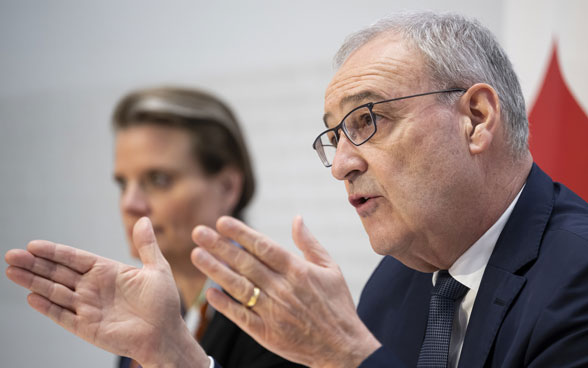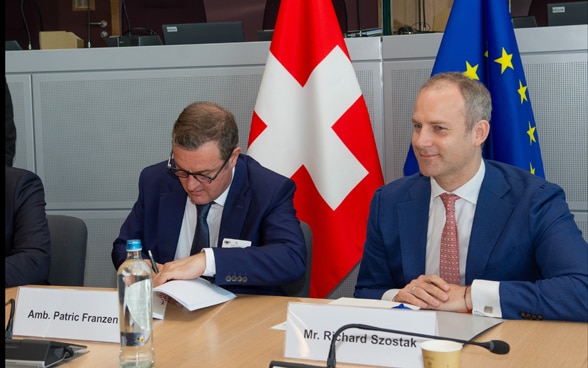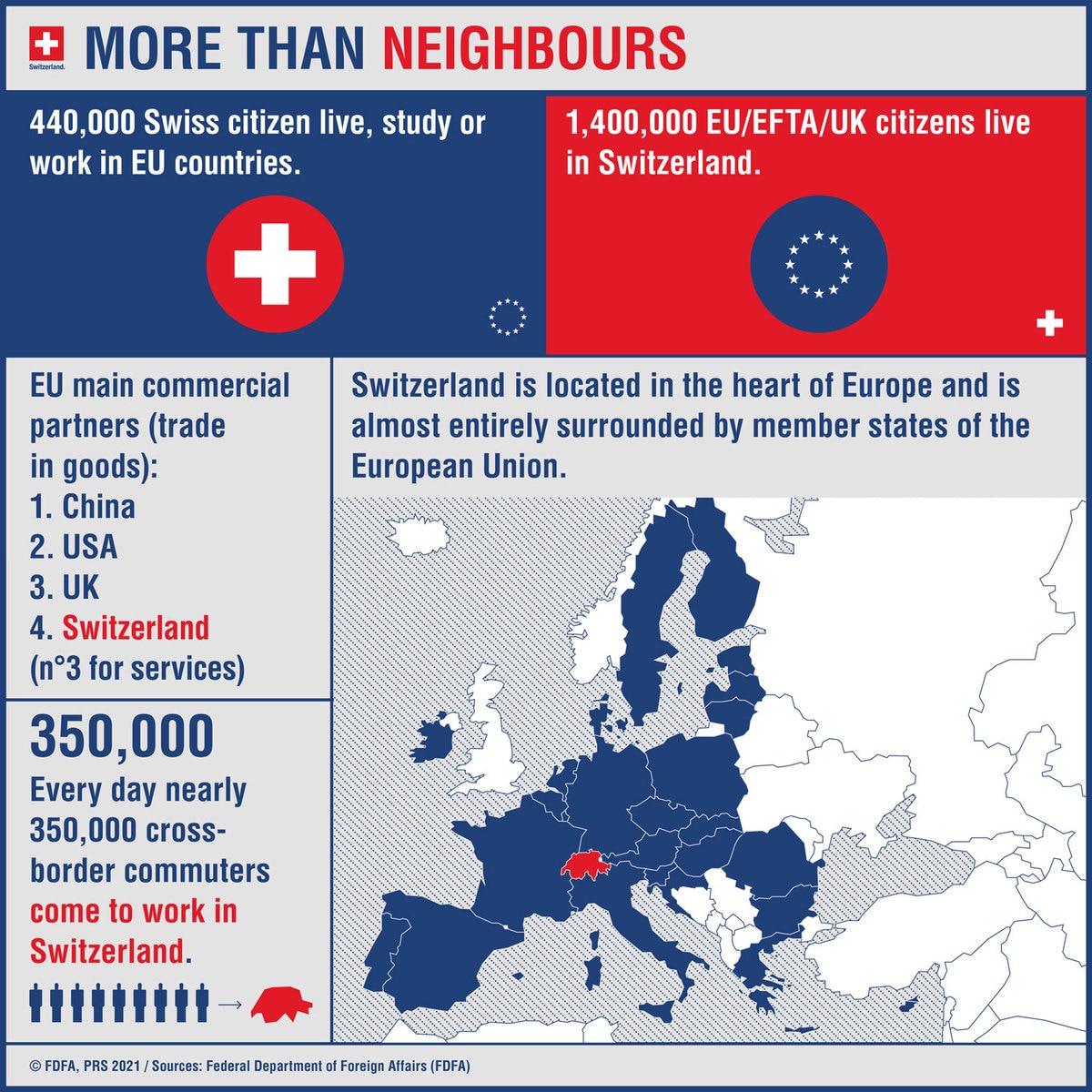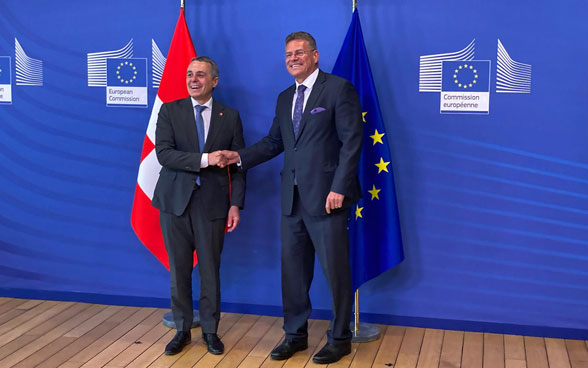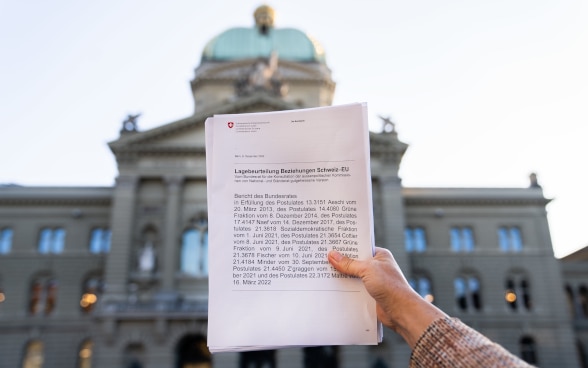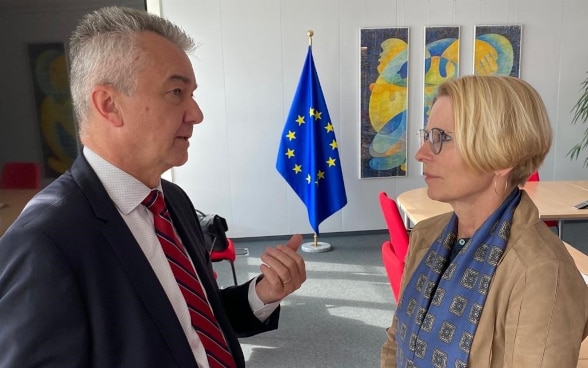At its meeting of 21 June 2023, the Federal Council reviewed the current situation regarding European policy and adopted the parameters for a negotiating mandate with the EU. The Federal Council will continue talks with the EU based on these guidelines and with a focus on clarifying outstanding issues. It will then prepare to adopt a negotiating mandate by the end of the year if the talks and work to be carried out in the Federal Administration continue to progress well.
The Federal Council's adoption of these parameters is a crucial step in its package approach. The parameters set out the areas to be covered by a new mandate, its general and specific objectives, as well as the potential leeway to safeguard Swiss interests. There are also sub-objectives for each area. The parameters are confidential as they may become the focus of future negotiations.
Wide-ranging cooperation with the EU: Federal Council's package approach
The package approach is intended to enable Switzerland to secure its access to the single market and mutual cooperation with the EU. It includes the sectors already covered by the existing agreements – free movement of persons, land and air transport, agriculture and technical barriers to trade – as well as three new agreements on electricity, food safety and health.
The new electricity agreement should address grid stability and supply issues; the new food safety agreement would remove further barriers to trade; and the aim of a health agreement would be to ensure cooperation in managing cross-border health risks like COVID. Switzerland is also seeking to resolve the impasse regarding Horizon Europe 2020 and, going forward, to ensure participation in programmes in the areas of research and innovation (Horizon and follow-up programmes), education (Erasmus+) and space (including Copernicus).
If the overall result is satisfactory, the Federal Council is open to make a regular solidarity-based contribution to cohesion and stability in Europe, with the aim of meeting common challenges.
The Federal Council is adopting a vertical approach by sector to settle institutional issues with the EU. It proposes that the dynamic adoption of law developments and dispute settlement can be addressed pragmatically in any single market agreement, old or new. It also involves the Federal Council negotiating exceptions and principles with the EU in order to safeguard Switzerland's essential interests. The many discussions held at technical, diplomatic and political level over the last 12 months show that such an approach in the interests of Switzerland is possible, providing greater legal certainty and predictability for individuals and businesses as well as stabilising and developing Swiss-EU relations.
The Federal Council's package approach: what's next
At today's meeting, the Federal Council instructed the FDFA, working with the EAER and the FDJP, to continue discussions with the EU in order to consolidate the common ground. Instructions for discussions at technical level were also issued. In the autumn, the Federal Council will assess the progress and decide whether to prepare for the adoption of a negotiating mandate by the end of the year.
Against the backdrop of the current geopolitical situation, smooth cooperation with the EU is essential. Switzerland and the EU are closely interconnected and share the same basic values. The EU is Switzerland's main trading partner by far – around half of Swiss exports go to the EU, and about two thirds of imports into Switzerland come from the EU. Well-regulated relations between Switzerland and the EU are essential, and guarantee prosperity and stability for both sides.
Press release
Factsheet “Parameters” (PDF, 2 Pages, 327.2 kB, English)
Factsheet “Package Approach” (PDF, 1 Page, 234.9 kB, English)


